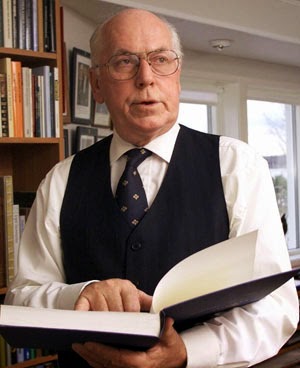BRISBANE, AUSTRALIA: As the world marked the 25th
anniversary of freedom returning to Eastern Europe, it is sad that two of the
wisest post-communisleaders are no longer with us.
In the extraordinary events
that followed the collapse of the Berlin Wall, Poland was the inspiration. It
had elected a non-communist government months before the wall came down. Lech
Walesa, Pope John Paul II are true heroes who changed the world. Ronald
Reagan’s strong stance and his 1987 call to “tear down this wall” were
similarly decisive. Mikhail Gorbachev, the last Soviet leader-- still alive at
83—courageously allowed the wall to be opened, sacrificing in the process
Moscow’s loyalist East German communists.
Comprehending the enormity of
Gorbachev’s deed, an astonished British editorialist wrote that, “all of Stalin’s
war time territorial gains in Europe were given up without a shot being fired.”
Events cascaded rapidly.
Czechoslovakia’s communist government collapsed within days after the wall came
down. Hungary catapulted towards free elections while the remaining regimes--
Romania, Bulgaria and Albania-- toppled like a row of dominoes. In 1990 East Germans voted to merge
their country with West Germany. And late in 1991 the USSR itself collapsed,
fragmenting into 15 separate countries.
History, in my opinion, will
judge Vaclav Havel of the Czech Republic and Lennart Meri of Estonia the most
significant leaders to have emerged from the wreckage of communism.
Meri, Estonia’s president from
1992 to 2001, deserves recognition. Born into a prominent family, when the Red
Army invaded in 1940, 12 year-old Meri, his mother and younger brother were exiled
via prison train to the Siberian gulags. His father, an Estonian diplomat, had
to endure Moscow’s infamous Lubyanka prison. Miraculously the family survived
and later Lennart was permitted to attend university. He became a respected
writer and filmmaker. He was 60 when the Wall came down.
Meri earned the admiration of
Estonians during the failed coup against Gorbachev in August 1991. With his
countrymen terrified that a Russian invasion would soon snuff out their drive for
independence, Meri took to the radio, assuring citizens they needn’t worry,
that he knew the plotters to be clueless and incompetent. There was no invasion
and Meri’s grandfatherly counsel had enormous impact.
Fluent in six languages, most
learned as a youth during his father’s postings abroad, Meri repeatedly
observed that the end of communism was a beginning, not an end. A tall,
dignified man, Meri understood the horror of mass deportation. But remarkably
he championed the cause of freedom for Russians. He died in 2006. Were he alive
today Meri would be aghast at Russian actions in Ukraine, and equally comforted
that Estonia’s security is anchored in Nato and European Union membership.
Lennart Meri as president
Vaclav Havel, like Meri, for
five decades was deprived of the honest, authentic life he so passionately
wanted. Like tens of thousands, he had to make the best of a bad situation.
Like Meri, Havel paid a heavy price for coming from an entrepreneurial
family that after the communist takeover in 1948 was denounced as a class enemy.
Coming of age during the period of maximum repression, he was banned from
universities. In 1975 he wrote a
devastating critique of totalitarianism. In six pages Havel dissected the
massive fraud and corruption of communism. Its lofty ideals, he wrote, were
hollow.
Reflecting on the 1989 Velvet Revolution in Czechoslovakia, Havel
explained to an audience at the World Economic Forum in 1992 how Soviet
imperialism imploded.
"Communism was not defeated
by military force, but by life, by the human spirit, by conscience…. It was defeated
by a revolt of color, authenticity,.. and human individuality."
Famous for his essay on the power of the powerless, Havel lived to see
the society where imperfectly, “truth and love prevail over hate and lies.”
Vaclav Havel
Universally hailed as a great European, Havel the dissident playwright
spent years in communist jails before being swept to the Prague Castle in the
Velvet Revolution. He served as president first of Czechoslovakia and then the
Czech Republic from 1989 to until 2003.
Vaclav Havel died at age 75 in 2011. Writer Anne Applebaum hails Havel’s unique success in making
the transition from dissident to national leader.
Alan Levy, the founding editor of the Prague Post, was asked why Prague
had become the in spot for émigré young Americans in the 1990s. He replied that
he himself had pondered the question, why Prague instead of Berlin, the place
that exemplified both the wall and freedom. “Prague,” he concluded, “became the
Mecca for young people because of one man, Vaclav Havel. It was Havel’s example
of intelligence, modesty, artistry and love that drew people to Prague.”
Havel and Meri, I suspect, would both celebrate 25 years of freedom,
while warning of the obvious dangers ahead.
Barry D. Wood covered the collapse of communism and the rebuilding of
Eastern Europe for Voice of America. A version of this article appeared on
marketwatch.com

